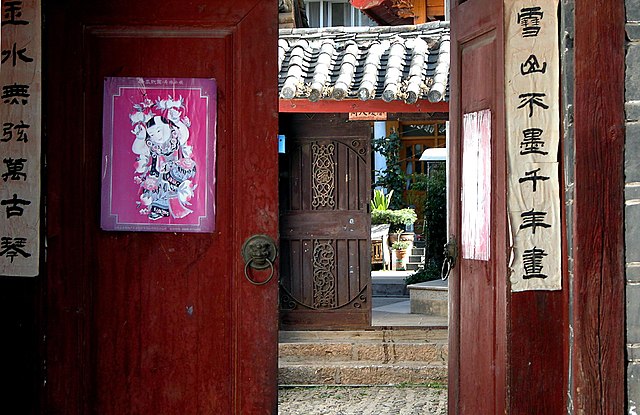Mao Zedong (1893–1976), the first Chairman of the Chinese Communist Party and leader of the People's Republic of China for nearly 30 years, wrote poetry, starting in the 1920s, during the Chinese Red Army's retreat during the Long March of 1934–1936, and after coming to power in 1949 following the Chinese Civil War. In spite of Mao's political radicalism he was artistically conservative, opting to use traditional Chinese forms.
Mao Zedong's poem "Shuidiao Getou – Swimming" (《水调歌头·游泳》, 1956) on the pedestal of the 1954 Flood Monument in Wuhan (built 1969)
Chinese poetry is poetry written, spoken, or chanted in the Chinese language, and a part of the Chinese literature. While this last term comprises Classical Chinese, Standard Chinese, Mandarin Chinese, Yue Chinese, and other historical and vernacular forms of the language, its poetry generally falls into one of two primary types, Classical Chinese poetry and Modern Chinese poetry.
"Quatrain on Heavenly Mountain" by Emperor Gaozong
Hand-painted Chinese New Year's dui lian (對聯 "couplet"), a by-product of Chinese poetry, pasted on the sides of doors leading to people's homes, at Lijiang City, Yunnan.
A Tang dynasty era copy of the preface to the Lantingji Xu poems composed at the Orchid Pavilion Gathering, originally attributed to Wang Xizhi (303–361 AD) of the Jin dynasty




